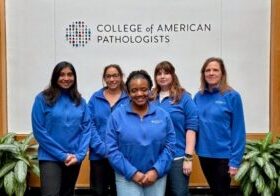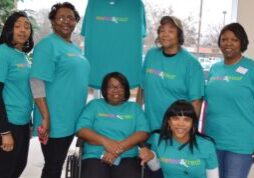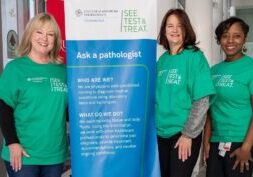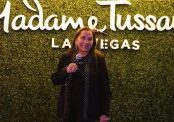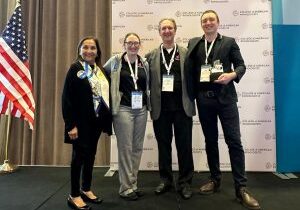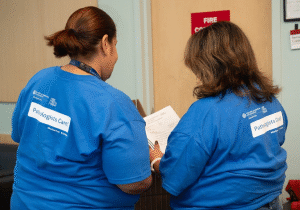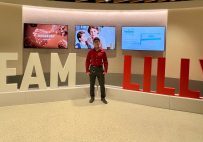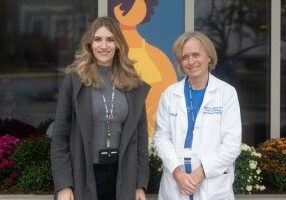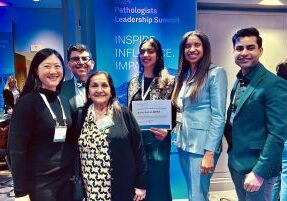Delivering Life-Saving Cancer Screenings to Women of Every Background
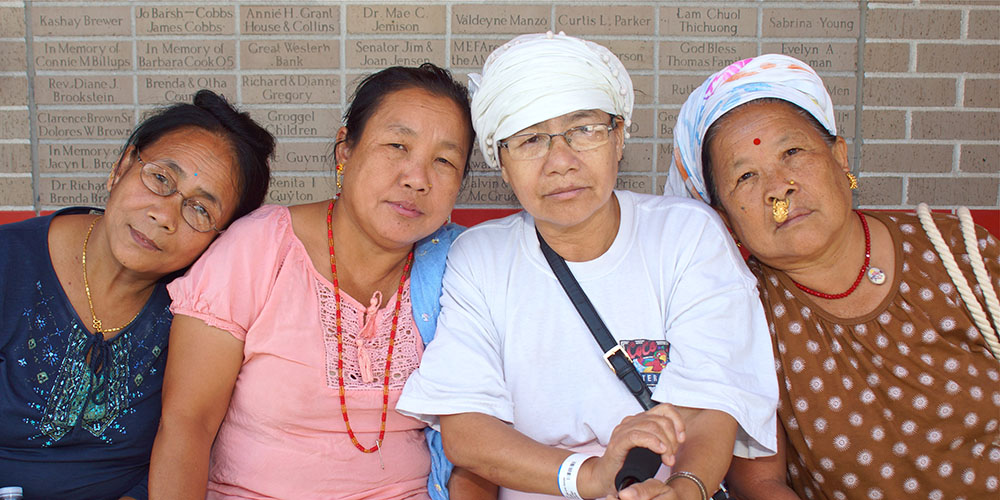
Of all the barriers between women across the country and life-saving cervical and breast cancer screenings, the language barrier can be one of the most difficult to overcome. At Charles Drew Health Center in Omaha, Nebraska, Anthony Montegut, MD, says that many women in the community speak a primary language other than English and that puts them at a high risk of these cancers going untreated.
“A lot of these women move around frequently, and their addresses and phones change before we can arrange follow-up care or find out if they qualify for assistance,” Dr. Montegut said. “See, Test & Treat helps eliminate those barriers by arranging everything on the same day.”
Charles Drew is the site of the pilot programs of See, Test & Treat more than a decade ago, serving at-risk women on Native American reservations. Gene N. Herbek, MD, FCAP, pathologist at Charles Drew, former CAP Foundation Board member, and former CAP president, led the pilot. He has since seen See, Test & Treat grow to reach thousands of women in more than 10 languages.
Becton, Dickinson and Company (BD), a major donor, contributed to the Omaha program, the first one of its kind in the city.
A medical technology company that manufactures and sells medical devices, instrument systems, and reagents, BD forged the partnership between the CAP Foundation and Charles Drew. BD contributed $50,000 over two years of planning and implementation.
“Even though this was our first year, we delivered at least 40 cervical cancer screenings, each one to a woman who had no other alternative,” Dr. Montegut said. “About one third had never had a Pap test in their life. One result was confirmed to be cancerous.”
A language interpreter at Charles Drew recalled helping a group of mostly elderly women from Nepal explain how grateful they were to receive screenings at no cost. Overcome with emotion, the Nepalese women sang a song in their native language.
Dr. Montegut said it was one of the most touching moments he has experienced asa physician.
In a beautiful thank-you note, a Spanish-speaking woman said she was grateful there was a program that helped women like her.
“Our only limit is how we can work together as a health care industry and as a community. With supporters like BD we have the opportunity to save lives,” said Dr. Herbek.
More Stories
Why Donate
Every person deserves a diagnosis. Support care beyond the microscope. Expand access to pathology-locally and globally.


